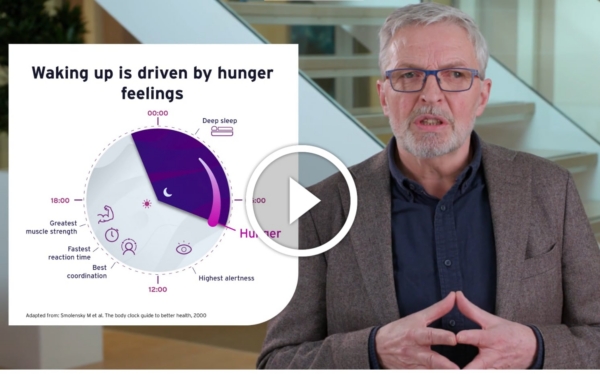Introduction to Orexin: A Strong Wake-Up Call
In this video, we explore how stress and diet impact our sleep and describe the signals from our bodies that wake us up.
In this video, we provide a short introduction to orexin, a strong wake-up call.
A good night’s sleep is an important part of our circadian rhythm and necessary for good health. Normally, waking up is the result of several triggers that become stronger and stronger during the night.
In this, production of the neuropeptide orexin plays an important role. It is a strong awakening signal.
The restricted number of orexin producing neurons located in the lateral hypothalamus of the brain are stimulated by low blood glucose and low insulin and by slight acidification of extracellular fluid, normal consequences of starvation during the night.
However, the stress hormone, cortisol is also an important stimulant of orexin production. At least, in theory, acidification of the extracellular fluid can be slowed down by ensuring sufficient magnesium from the diet.
Stress can be reduced by changing lifestyle, but also by stimulating serotonin production and preservation, for example, by vitamin D.
Furthermore, growing evidence tells us that certain gut bacteria can reduce stress, in other words, it appears there are good dietary possibilities to stimulate qualitative sleeping.
Watch the video to learn more, or see our solutions for sleep.
